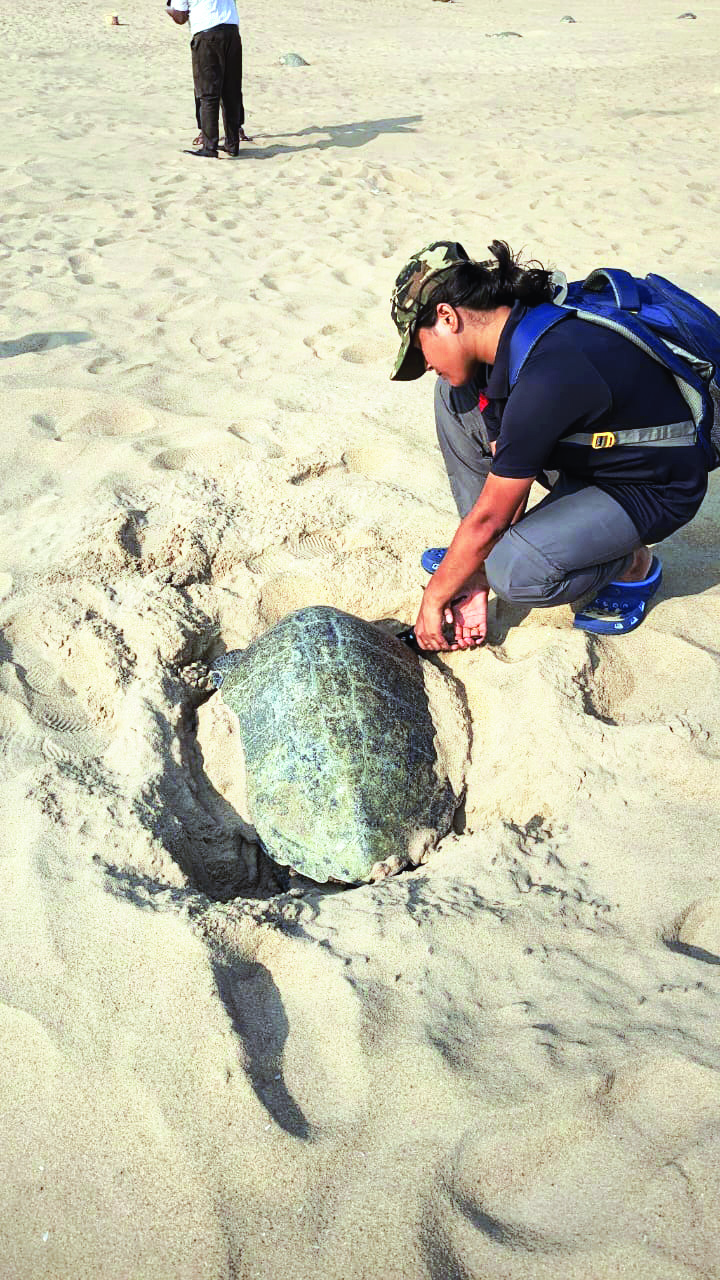ZSI kicks off Olive Ridley Turtles’ tagging exercise

kolkata: Scientists at the Zoological Survey of India (ZSI), on Thursday, kicked off its exercise of tagging Olive Ridley Turtles along the Odisha coast mainly for the purpose of identifying the reptiles’ migration path, areas of foraging and places visited by them after congregation and nesting.
The result of previous years’ tagging has been encouraging. On April 2, a turtle was tagged at the Rushikulya Rookery. It was captured ten months later on Geruwala Beach in western Sri Lanka, some 3000-odd km away.
Some three to four lakh Olive Ridley Turtles migrate to mass nesting sites and Rushikulya happens to be the second-largest mass nesting site in the world. Mass nesting continues for a period of five to seven nights. “Olive Ridley turtles are Schedule I animals and presently stand under the vulnerable category, as per the International Union for Conservation of Nature (IUCN). Interestingly, turtles are being found in the same spots where they were tagged last year. More than 20 tag returns we spotted on the very first day. So, it is of utmost importance to protect the beaches from their mass nesting,” said Dr Basudev Tripathy, Scientist ZSI.
The efforts made to conserve these turtles are proving to be fruitful as it has come down from the endangered to the vulnerable category in the IUCN list. Researchers have set a target of tagging 30,000 turtles over the next few years. Last year, 8000 were tagged and the target for this year is a minimum of 6000 turtles.
A senior scientist involved in the tagging exercise said that it will not only help understand whether they keep coming to a single nesting site for laying eggs but also the number of sites they visit over the years. It will also ascertain whether more aged turtles or younger ones return to the same site.
Besides, this will provide an idea about the age group that is more vulnerable to boat collisions, and incidental take in fisheries. Trawling, gill nets, ghost nests, longline fishing, and pot fishing have significantly affected the Olive Ridley population, as well as other species of marine turtles. Between 1993 and 2003, more than 100,000 Olive Ridley Turtles were reported to be dead in Odisha, due to fishery-related practices.
The exercise will also be carried out at two other mass nesting sites- Gahirmatha and the Devi River mouth. Olive Ridley Turtles are known to migrate over a thousand kilometers between their nesting and feeding grounds, globally. Metal tags that are fixed to the turtles are non-corrosive and harmless to their body and can be removed later.



